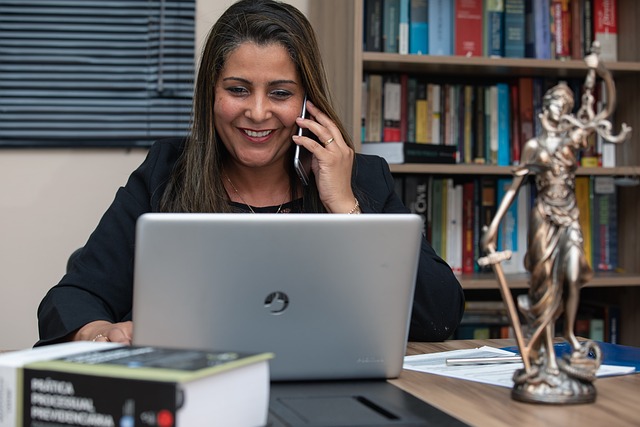Navigating Oregon's complex child welfare laws requires experienced legal experts specializing in custody battles, foster care, and adoption. Choosing the right attorney focuses on building navigating attorney relationships with deep knowledge of local laws, fostering trust through open communication. This partnership ensures informed decision-making, advocating for children's best interests, and providing stability throughout legal processes. Effective communication and structured approaches enhance transparency, ultimately improving case outcomes.
Navigating the complex landscape of Oregon child welfare laws can be daunting for parents and guardians. This article guides you through crucial aspects of working with legal experts specializing in this field. We explore strategies for understanding state regulations, selecting the right attorney, fostering trust, and ensuring effective communication. By mastering these skills, you’ll be better equipped to represent your case with confidence, ultimately navigating the attorney-client relationship successfully.
- Understanding Oregon Child Welfare Laws
- Selecting the Right Legal Expertise
- Building Trust in Attorney-Client Relationship
- Effective Communication Strategies
- Representing Your Case with Confidence
Understanding Oregon Child Welfare Laws

Navigating Oregon’s child welfare laws can be complex, making it crucial for parents involved in such cases to understand their rights and responsibilities. These laws are designed to protect children while ensuring fair treatment for all parties. By engaging with experienced Oregon child welfare legal experts, parents can better comprehend the intricacies of these regulations.
These professionals guide clients through the intricate processes, including custody battles, foster care placement, and adoption procedures. They help navigate attorney relationships, ensuring open communication and aggressive representation to safeguard the best interests of the child. Understanding the legal framework empowers parents to make informed decisions, collaborate effectively with attorneys, and ultimately advocate for their children’s well-being.
Selecting the Right Legal Expertise

Selecting the right legal expertise in Oregon’s child welfare system is a crucial step for ensuring the best outcome for all involved parties. It’s not just about finding a lawyer; it’s about finding the right navigating attorney relationships who understand the complex web of laws and regulations surrounding child protection. This involves considering experience, specific areas of practice within family law, and a demonstrated track record in similar cases.
Look for attorneys who have extensive knowledge of Oregon’s unique legal landscape regarding child welfare, foster care placement, and termination of parental rights proceedings. The right lawyer should be adept at navigating these intricate cases, effectively communicating with clients, and building strong relationships based on trust and transparency. Such a foundation is essential for open communication and collaborative problem-solving throughout the legal process.
Building Trust in Attorney-Client Relationship

Building trust is a cornerstone of any successful attorney-client relationship, especially within sensitive areas like Oregon child welfare law. When navigating complex cases involving minors, clients must feel confident in their legal representation. This begins with open and honest communication where attorneys actively listen to their client’s concerns, fears, and unique family dynamics. By demonstrating empathy and understanding, lawyers foster an environment of trust, encouraging clients to share vital information crucial for crafting robust legal strategies.
In the context of child welfare, this trusting partnership is essential for effectively advocating for the best interests of the child. Clients may face challenging emotions and complex situations; thus, a strong attorney-client relationship provides stability and security throughout the legal process. Lawyers who prioritize building trust empower their clients to make informed decisions, ensuring they feel heard, respected, and supported during one of life’s most turbulent periods.
Effective Communication Strategies

Effective communication is key when working with Oregon child welfare legal experts, as it sets the foundation for a collaborative and successful partnership. Navigating attorney relationships requires clear and concise dialogue to ensure everyone involved understands the case’s complexities and goals. Legal professionals in this field often juggle multiple cases and deadlines, so establishing open lines of communication from the outset is vital. This includes regular check-ins, detailed updates on significant developments, and a willingness to listen to concerns or questions.
A structured approach to communicating can make all the difference. Using case management tools or scheduling dedicated conference calls allows for organized discussions, ensuring no detail is overlooked. It also fosters transparency, which builds trust between clients, caseworkers, and attorneys. Effective communication strategies not only facilitate smoother decision-making but also enhance the overall outcomes of child welfare cases.
Representing Your Case with Confidence

When it comes to representing your case in Oregon’s child welfare system, having a skilled and knowledgeable attorney by your side is invaluable. These legal experts are well-versed in the intricate details of family law and have dedicated their careers to advocating for children and families. They understand the emotional weight carried by such cases, ensuring you feel supported throughout the process.
Effective navigation of this complex landscape starts with a strong attorney-client relationship. By fostering open communication, your lawyer can gain a deep understanding of your unique situation. This enables them to develop tailored strategies, ensuring your voice is heard and your rights are protected. With their guidance, you’ll approach each step of the legal process with confidence, knowing your case is in capable hands.






